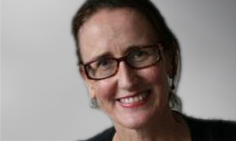THE devastating images from the Philippines in the wake of typhoon Haiyan have probably led many of us to reach for a credit card and make a donation.
It’s an easy decision to try to help other human beings in strife.
The relief teams that those donations — and taxes — help fund are facing complex and harrowing decisions once they hit the ground.
Members of an Israeli medical team responding to the 2010 Haitian earthquake later wrote about the complex ethical issues they faced when their resources could not come close to meeting the need for assistance.
Normal triage procedures did not apply: most often, it was not a question of what order patients would be treated in, but whether they would be treated at all.
Aiming to save as many lives as possible, doctors on the team found themselves assessing, not just how urgent a prospective patient’s condition was, but also whether they had the resources to treat it adequately and the person’s prospect of survival if they did.
Should they allow one of their 72 beds to be occupied by a critically ill patient who might require days or weeks of care, or should they focus on those people who could be treated and discharged quickly, allowing more to be admitted?
Tough decisions were made to turn people away, in some cases because untreated wounds had become septic.
The team also faced a repeated dilemma over whether to accept patients with crush injuries, considered at risk of rhabdomyolysis and subsequent renal impairment. The lack of functioning dialysis facilities meant their chance of survival was low.
None of this came easily.
“Denying care to some patients for the benefit of others was not a course of action that came readily to physicians accustomed to treating all who seek care”, the team wrote.
That’s probably an understatement.
Volunteers from the Massachusetts General Hospital in the US found themselves grappling with similar ethical issues after their participation in the Haitian relief effort.
In a 2012 paper they question the common “utilitarian” approach, which sees saving the greatest possible number of lives as the highest priority.
In the wake of a disaster, triage is not a one-off decision about who to treat and who to turn away, they write, using the term “repeat triage” to describe the series of rationing decisions that have to be made, including those about limiting, prematurely ending or withdrawing care of one patient so that others can be accommodated.
Should a child whose kwashiorkor has improved with adequate nutrition be discharged in the knowledge they will relapse once back in the devastated environment they came from?
Should a patient who is ventilator-dependent following surgical complications be extubated to allow surgery to proceed for other patients?
These authors argue the ethical framework for disaster medicine should allow modification of the utilitarian approach to give existing patients some “limited priority” over those who have yet to be admitted.
Among the ethical and pragmatic arguments they make are the need to honour the established patient’s trust and, perhaps less obviously, an imperative to protect health workers from emotional distress.
“Taxing demands on relief workers — including being regularly forced to discharge vulnerable people onto the streets, to remove a critically ill patient from life support, or to amputate a child’s limb against their own sense — can result in worker attrition, system failure, and compromised care during disaster”, they write.
“Health providers should normally not be asked to behave in ways that profoundly violate their personal and professional integrity, and abandoning existing patients may do so.”
Few of us face ethical dilemmas on this scale. All we can do is to respect and support those grappling with them today, in the Philippines and elsewhere.
Jane McCredie is a Sydney-based science and medicine writer.

 more_vert
more_vert
I salute all those helping in the Phillipines. Thankyou from the bottom of my humble heart. It’s a really tough job.